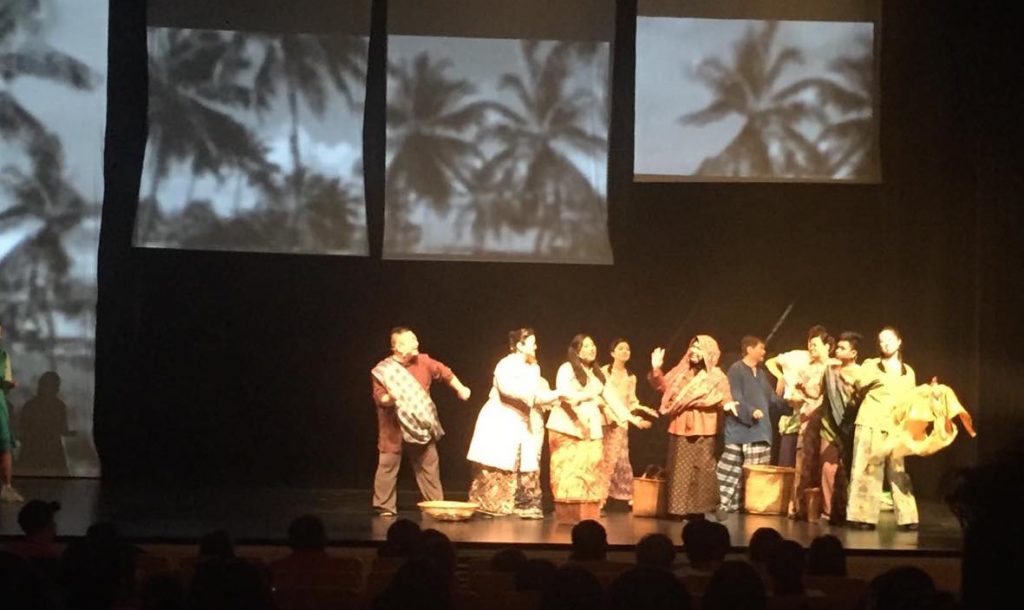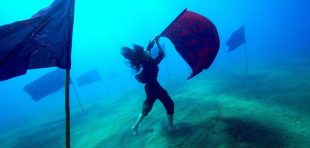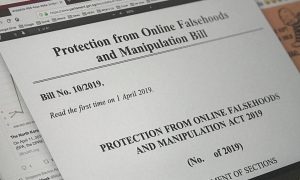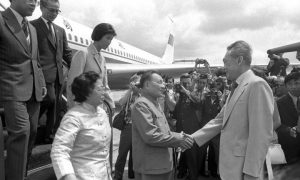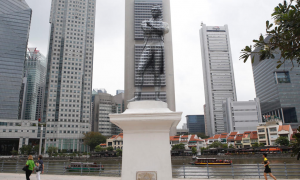
The production flyer. The production featured only two professional performers – the rest of the cast was made up of amateur community resident-actors. The play was directed by Jeffrey Tan and Jeremiah Choy and written by Ng Swee San
MY Bridge of Light, a community musical-play staged by the Marsiling-Yew Tee constituency in May 2019, was a “ground-up” event supported by the Singapore Bicentennial Office. The premise is simple enough: in the year 2019, a teacher (Mr Yang) and two students (Devi and Aminah) are working on their entry for a robotics contest the following day—very Singaporean. Unbeknownst to the students, Mr Yang had figured out the secret to time travel—the robot, named Robot—and was plotting to make a quick trip to his childhood years that evening. Unfortunately it doesn’t quite work out and they all tumble back in time two hundred years, to the year 1819. And the rest, as they say, was history…
No, literally. In the process of finding their way home, they travelled through all the key dates in any Singaporean history textbook—Raffles’ landing, the colonial era, the Japanese Occupation, and post-Housing Development Board Singapore—interacting with the people from the past and gleaning helpful lessons in the process about overcoming hardship, self-determination, respect, and the importance of family. In the grand finale before they went back home, the teacher got to reunite with his grandparents for a brief moment to thank and hug them (despite the fact that, as one of the play’s most charming lines puts it, “hugging is a Western concept”). There was an actual bridge on stage, of course, but the take-home metaphor is that you can find YOUR “bridge of light” (capitalisation intended) in yourself, and anywhere you call home: with your family, your friends, and your country.
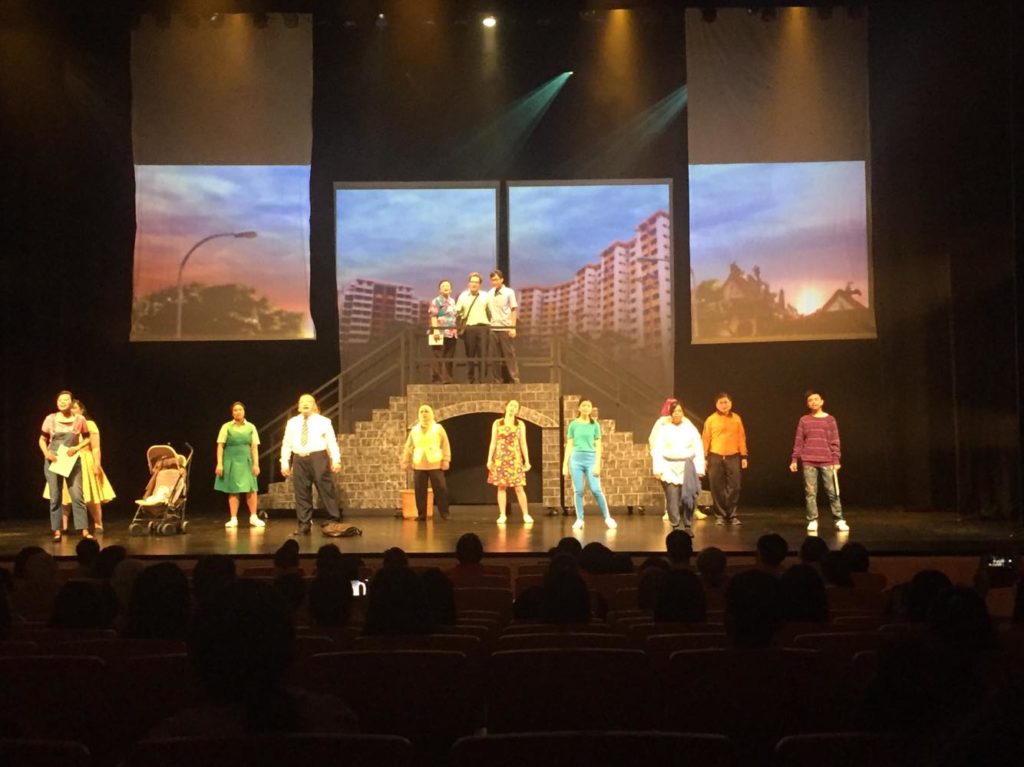
The cast sings the final song in the story. Mr Yang is temporarily reunited with his grandparents. Photo by author (the audience were invited to take pictures, just no flash photography.)
I woke up early on a Saturday morning to travel the one and a half hours to Woodlands (alas, the MRT was undergoing trackworks) to see MY Bridge of Light because I was curious what an SG Bicentennial-sponsored play would be like—although I admit my curiosity was laced with leering scepticism. What kind of hackneyed tropes would I witness? What kind of songs would I have to sit through? Would there be a perfectly bilingual and all-too-chirpy emcee (a ubiquitous presence in such community events)? A lucky draw to win some NTUC vouchers?
There were indeed a lot of clichés, many cheesy songs, and an exceedingly articulate emcee bracketing the show and trying to drum up as much enthusiasm as possible from the audience. There was no lucky draw (that I knew of), however there was a bizarre sing-along session of We Will Get There, the catchy 2002 National Day Parade theme song. With all that said and done, I found myself having a good time with my friend. I laughed at the jokes and felt a distinct sense of nostalgia. There is footage of me singing We Will Get There with gusto. The cast and crew did a great job and looked like they were having fun.
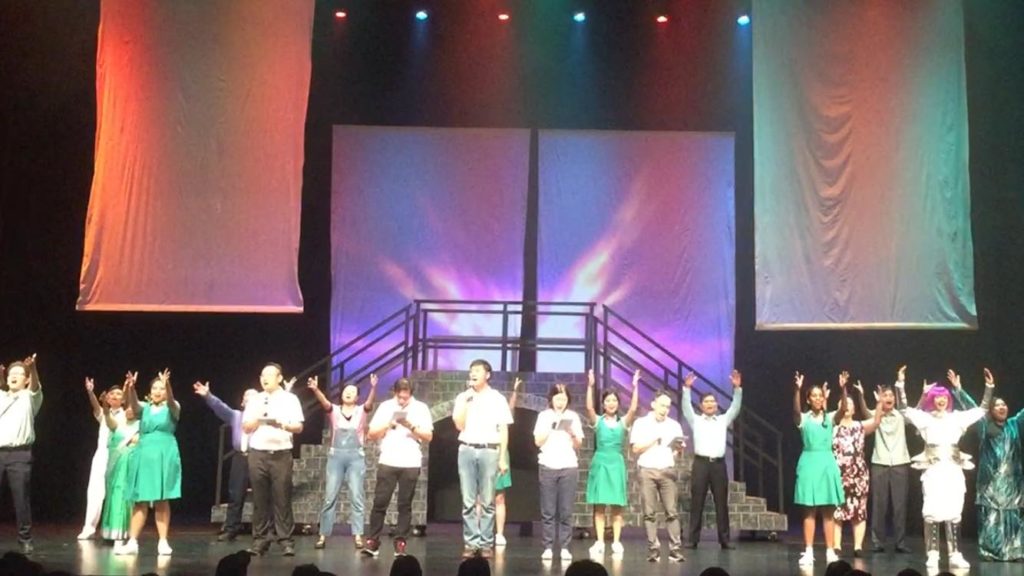
The producers of the play (in white) join the cast and audience to sing We Will Get There on stage as a finale. Some of them did not have the lyrics memorised. Photo by author.
This is the way most Singaporeans will encounter the Bicentennial: through “grassroots” community projects that spring up in shopping malls, community centres, local neighbourhoods and MRT stations. Such events are usually supported by the People’s Association, a statutory board under the purview of the Ministry of Culture, Community and Youth (the chairman of the PA is always the Prime Minister of Singapore). According to this table, the PA is supporting forty Bicentennial events this year, including MY Bridge of Light.
Singing national day songs, listening to heartwarming narratives, appreciating different ethnic groups (precisely four of them) and their food and clothing are the main modes of engagement between the Bicentennial and the average Singaporean, not through contemporary art (as in the NTU CCA exhibition), and definitely not through political theatre (as in, for instance, The Necessary Stage’s Civilised, to be discussed next week).
That is not to say that such events are apolitical per se. The People’s Association is officially non-partisan, but by definition their activities serve the ruling government. It is thus unsurprising that the Bicentennial is another campaign towards cultural control, and that productions such as MY Bridge of Light is a largely a performative repetition of the Singapore Story.
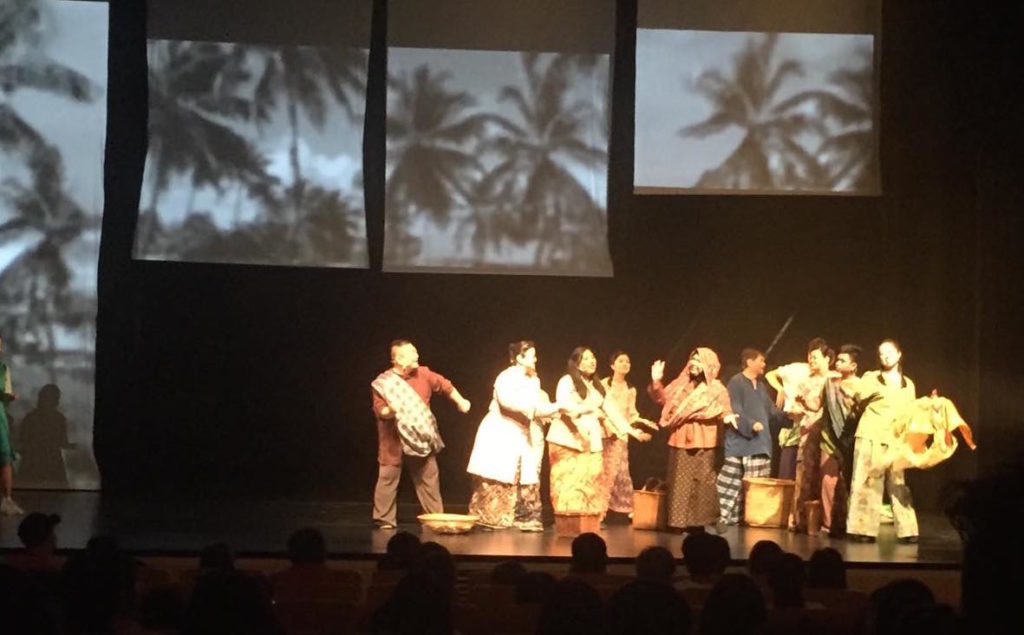
A villager sings a Malay tune in ‘1819’. Photo by author.
The performance also showed evidence of what I call the “storytelling state”—the recent fixation on life history-telling as a form of governmentality—going strong, extending from the days of the Singapore Memory Project. Prior to the play, there was a ten-minute video segment made up of oral history interviews with ex-residents of bygone kampungs in the area. These interviews mostly adhered to the nostalgic script about the days of unlocked doors, shared meals and sepak takraw, and expressed gratitude and hope for Singapore’s progress.
Bodies of/in water and the reversal of colonialism? Arus Balik at the NTU Centre of Contemporary Art
PoP's Cheng Nien Yuan continues her commentary on Singapore's Bicentennial.
“I am glad that I am one of the generations that could see both worlds, the rural world and the modern world, and I think for that I feel blessed.”
Perhaps the video editors were concerned that the actual statement as uttered was not close enough to the national script, and in post-production the subtitles overtly reflected this concern (see picture below).

Interview segment with a former resident of Lorong Fatimah, a kampung. The subtitles were a little embellished. Photo by author.
The play itself is arguably less “scripted”, in that sense, with more subtlety and nuance hidden in some ironic and self-aware moments. Refreshingly, with regards to the event of Raffles’ landing it also focused on the perspectives of the local residents. Raffles’ name was not mentioned, and his character never appeared; instead, in an interesting directing choice, the villagers came together and craned their necks towards a spot off-stage, where a mysterious light seemed to emit. There was no atmosphere of celebration or confetti-throwing, only a strange sense of what felt like foreboding to me, almost like an alien invasion. So it can’t be said that this particular Bicentennial event was even commemorating Raffles or colonisation in any way. In fact, it was more interested in cultivating “national values” in the present, paradoxically looking towards an ever-brighter future while maintaining the status quo: which is arguably the ultimate concern of the Bicentennial.
To be concluded next week
 Facebook
Facebook  Twitter
Twitter  Soundcloud
Soundcloud  Youtube
Youtube  Rss
Rss 